- Early Mental Health Prevention and Intervention
- Professional Development and Training
- Safe, Supportive and Positive School Climates
- High School
- Middle School
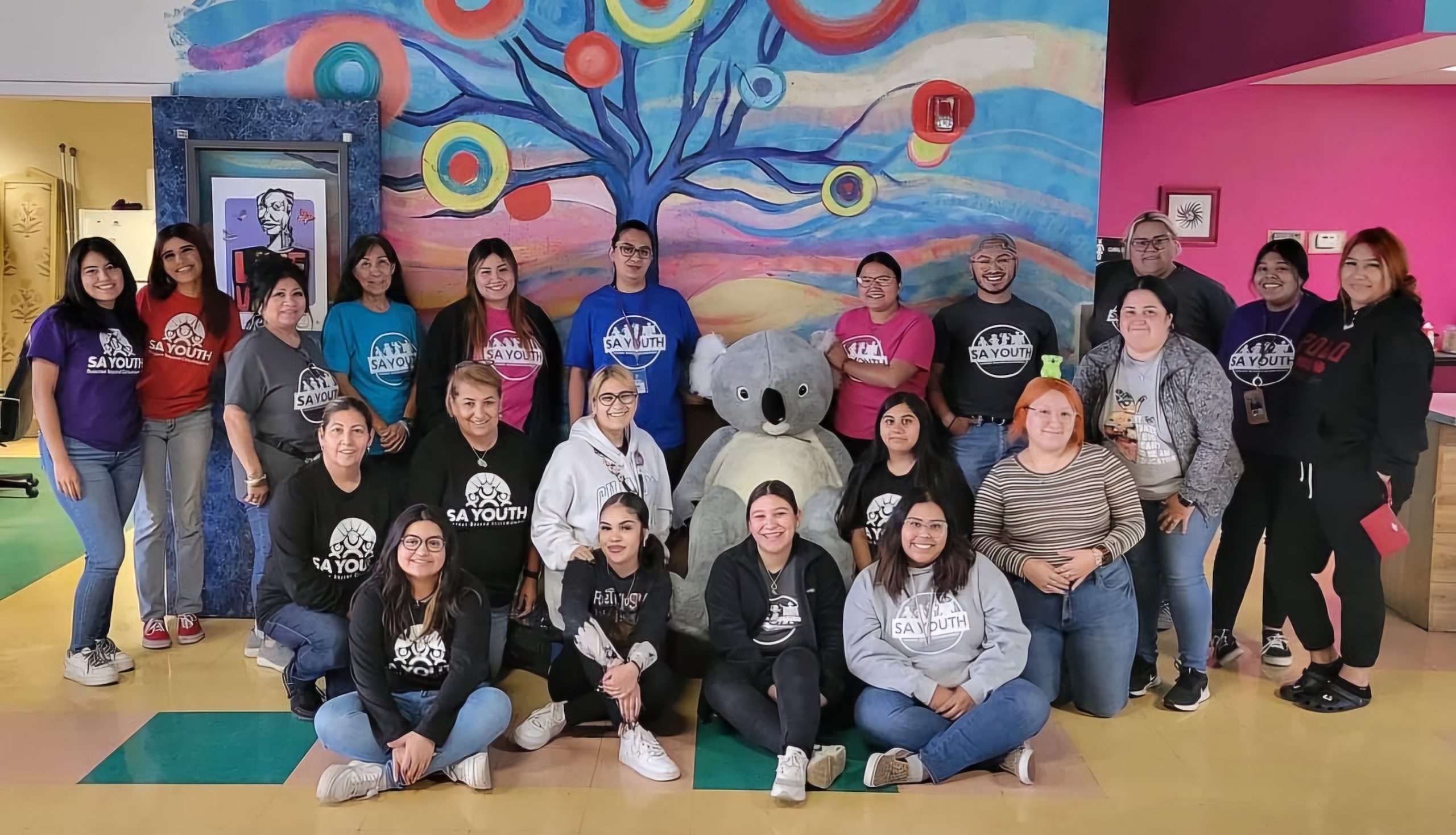
In this series, we’ll highlight impactful mental and behavioral health best practices across Texas to inspire schools interested in developing similar opportunities for youth.
The passage of House Bill 3 (HB 3) of the 88th Texas Legislature requires school district employees who regularly interact with students to complete an evidence-based mental health training program. Since HB 3 took effect in September 2023, Youth Mental Health First Aid (YMHFA), a training program to increase the ability of adults to recognize and respond to mental health and substance abuse concerns among youth, has grown in its use across Texas school districts.
When considering the Texas School Mental Health Framework, YMHFA addresses multiple components of a comprehensive school mental health system including early mental health prevention and intervention as well as professional development and training.
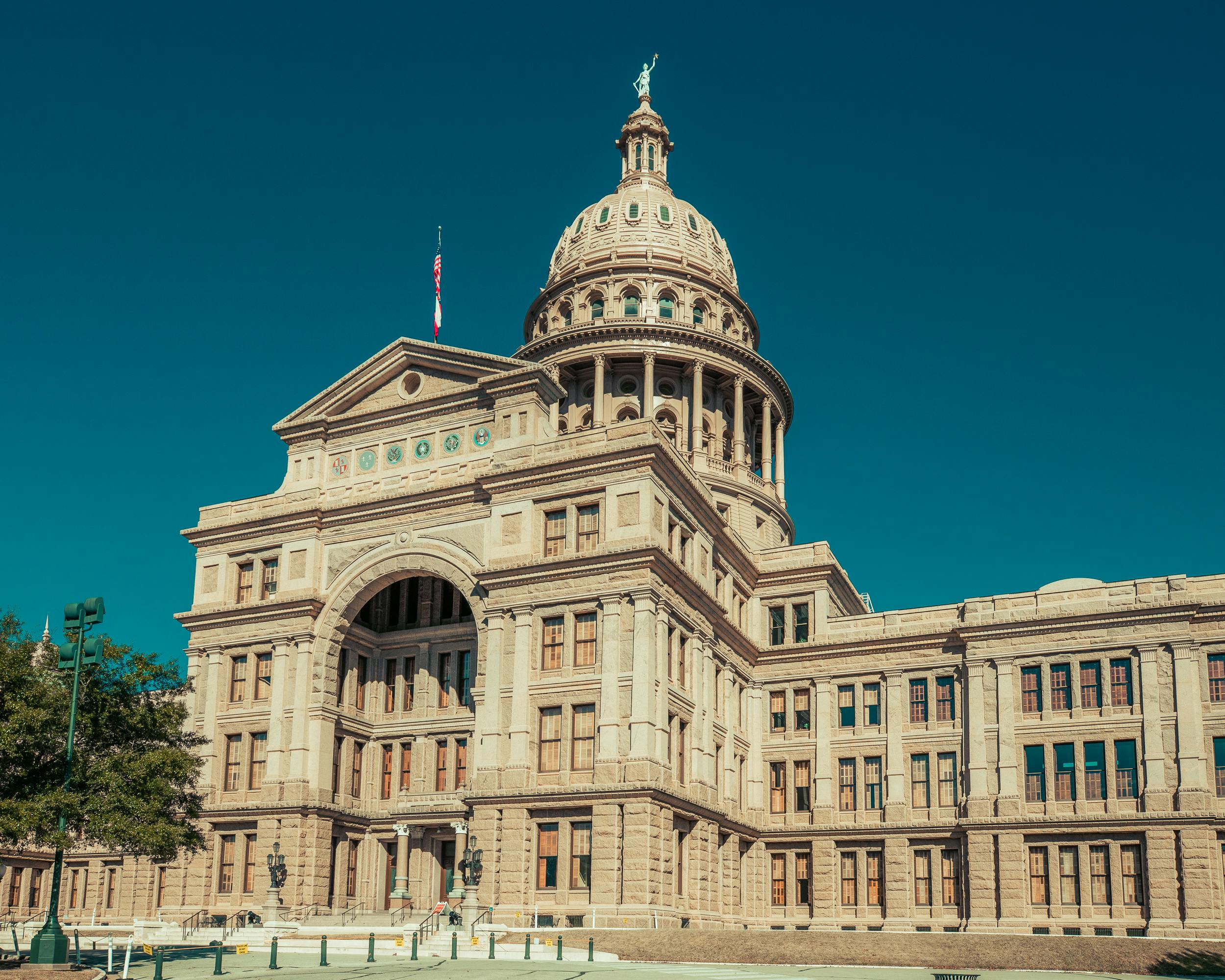
The Importance of Improving Mental Health Awareness in Schools
The Mental Health Training requirement found in the Texas Education Code §22.904 and the Texas Administrative Code §153.1015, requires all school district staff who regularly interact with students to complete an evidence-based mental health training program that’s designed to recognize and support youth facing mental health or substance use issues that may affect school safety. Having adults on a campus who can recognize and respond to mental health issues among students is essential to creating safe and supportive school environments.
According to the Archives of General Psychiatry, 50% of all mental illnesses begin by age 14, and 75% begin by the mid-20s. The Youth Mental Health First Aid course empowers the entire school community to address mental health concerns early on and help set students up to live healthier, happier lives.
Studies of Youth MHFA have found that individuals trained in the program:
- Show increased mental health literacy, which include:
-
- Knowledge of signs, symptoms, and risk factors of mental health and substance use challenges
- Ability to identify appropriate types of professionals and self-help resources
- Increase their confidence/self-efficacy in and likelihood to help a young person in distress
- Show reduced stigma/increased empathy toward youth with mental health challenges
- Use MHFA skills after training
- And more
Amy Anderson, mental health first aid grants director/coordinator/training specialist at Hill Country MHDDC, discussed one of the benefits of this training requirement. “Texans should not let Texans suffer in silence. You’ve got to step forward and let people know it’s okay to say I’m not okay,” Anderson stated.
School Staff Statewide are Training in Youth Mental Health First Aid
Although Texas school districts have faced a few barriers like time restraints and scheduling conflicts, the YMHFA trainers worked with administrators and staff to meet each district’s unique needs. Together, YMHFA instructors have been able to train thousands of school staff each year.
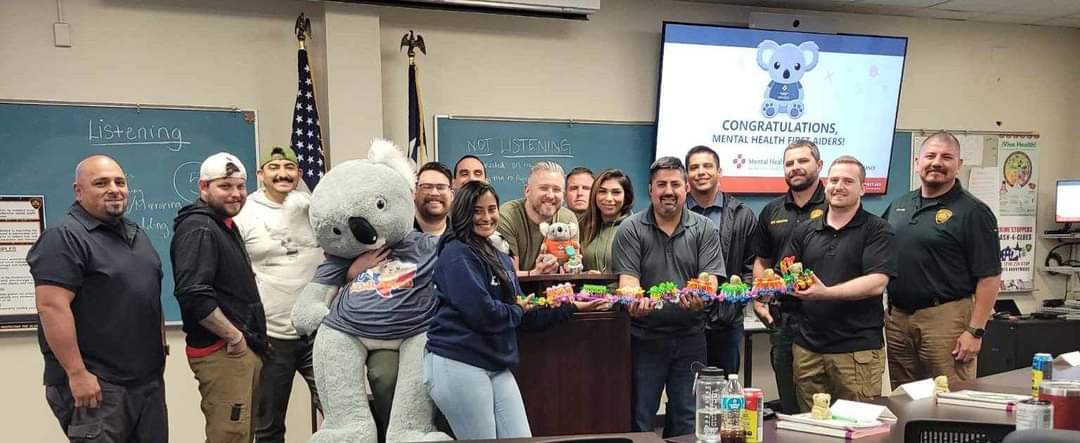
We recently spoke with six YMHFA instructors to learn more about mental health awareness in education, how they worked with schools to overcome training barriers, and the significant impact of their training.
North Texas
Phyllis Finley, mental health first aid community outreach coordinator for Denton County MHMR, shared her team’s ambitious goal of training 1,200 staff members by the end of 2024. She also highlighted how eager she was to collaborate with Northwest ISD staff to address challenges and schedule training sessions.
Amy Sanders, mental health first aid and zero suicide program manager at North Texas Behavioral Health Authority, mentioned that in the Dallas area, they initially trained about 250-300 people per year and have now grown to training over 5,000 people. She pointed out that some educators even train on their own time because they care so much about supporting students’ mental health.
Central and West Texas
Angie Bates, outreach worker at MHMR Authority of Brazos Valley, shared her team’s impressive achievement of training an entire school district in just two days— conducting 20 in-person classes. In one of Angie’s sessions, an elementary science teacher with 24 years of experience revealed that it was his first time receiving training in Youth Mental Health First Aid (YMHFA). He let the training team know that having access to this knowledge earlier in his career would’ve benefited him and his students a great deal.
She proudly added that this educator is from a district that’s now 100% trained.
Dalia Ramirez, mental health first aid training and outreach coordinator at PermiaCare, said there are usually some hesitant attendees. “Those are usually the ones who end up having a light bulb moment.” Ramirez continued, “During the training you can see their face light up, and they start to realize maybe this is why their student, family member, or friend is struggling.”
Dalia emphasized the importance of providing training in rural areas with limited mental health resources like Brewster County in West Texas, where communities often rely on helping each other find the right services.
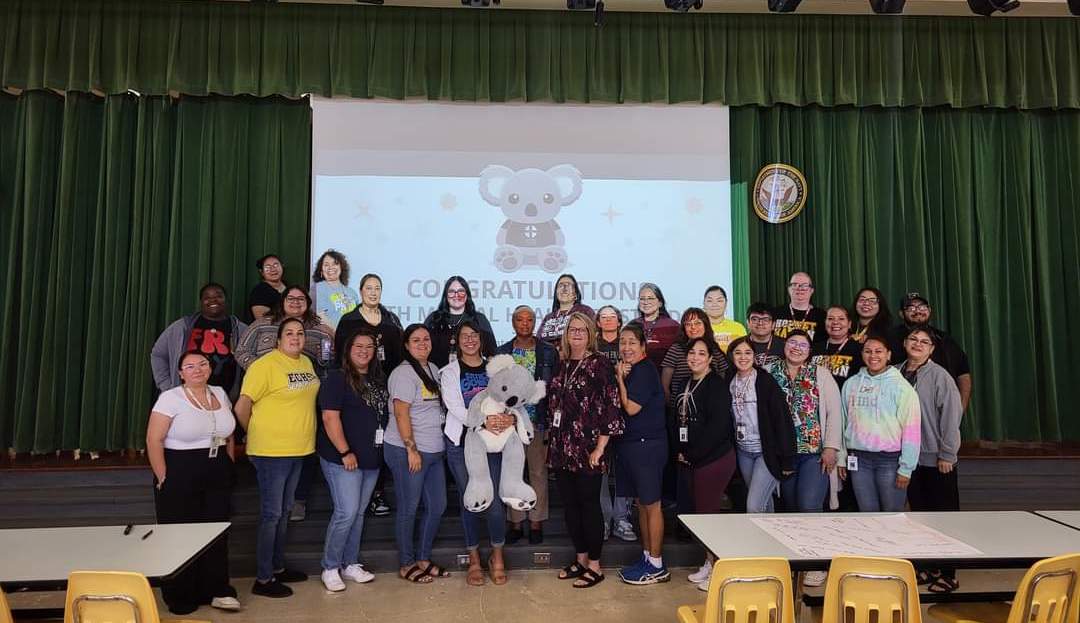
Central and South Texas
Amy Anderson’s organization provides services to 41 public school districts from New Braunfels to Del Rio. She proudly highlighted a session in San Marcos last August where her team trained 740 people in one day. She also noted that Uvalde CISD is 100% trained in YMHFA.
Although teachers face barriers with scheduling, Amy has seen a lot of success by offering virtual training options and adapting to different learning styles.
Karen Coleman, mental health first aid outreach specialist at the Center for Health Care Services, noted that they started training around 200 people in Bexar County in 2014. Now, they train over 1,000 educators per year.
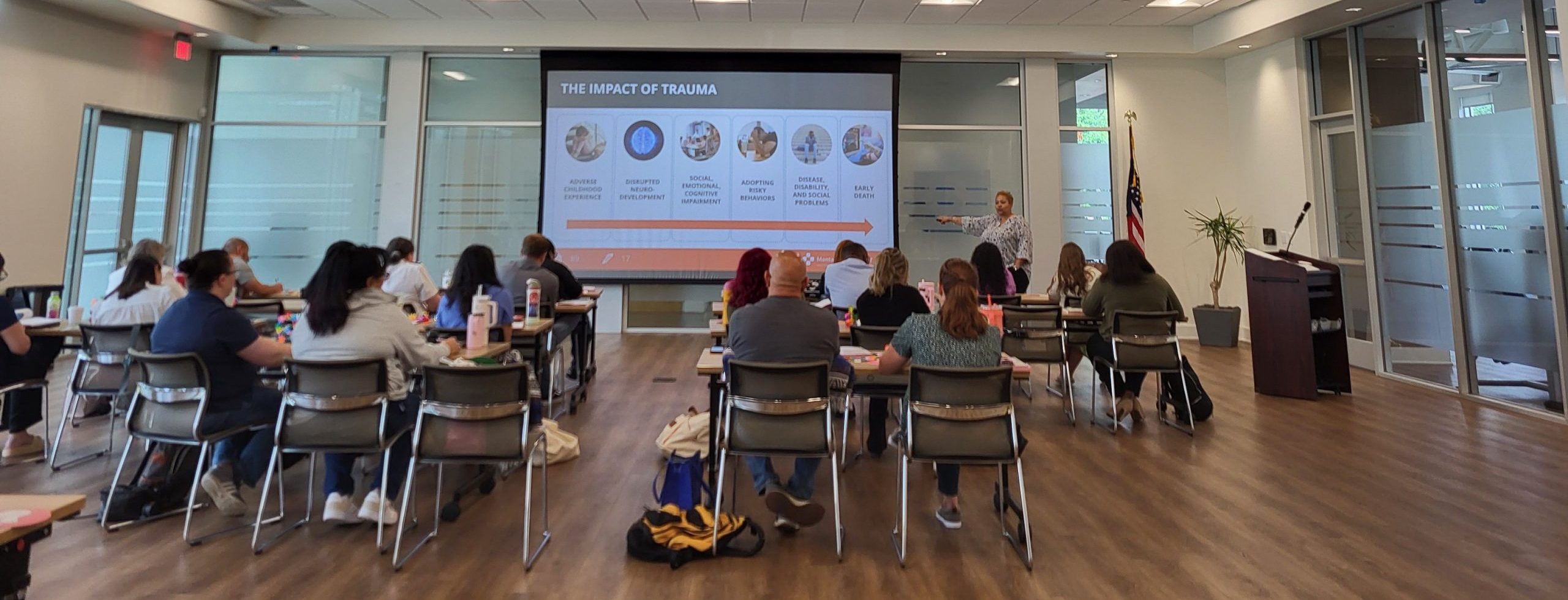
Karen explained that the YMHFA course defies people’s expectations. “Everybody’s shocked that it’s very interactive and engaging,” Coleman said. “They thought they were going to fall asleep, but it’s not that type of training.”
Changing Lives: The Impact of Youth MHFA
YMHFA Skills Can Be Used On Day One
Amy Sanders said she often asks people how many times they’ve done CPR on someone in the last year. Although it’s a valuable training, most people don’t use it often.
“The skills we learn with YMHFA, we use them every single day,” Sanders said. “I think that, in itself, is the impact. We’re talking about mental health, and those conversations are becoming more normalized.”
Instructors facilitate hands-on exercises and real-world scenarios during the training to equip everyone with the skills they’ll need to intervene in a crisis, and they also take the time to address real situations school staff are facing in their district.
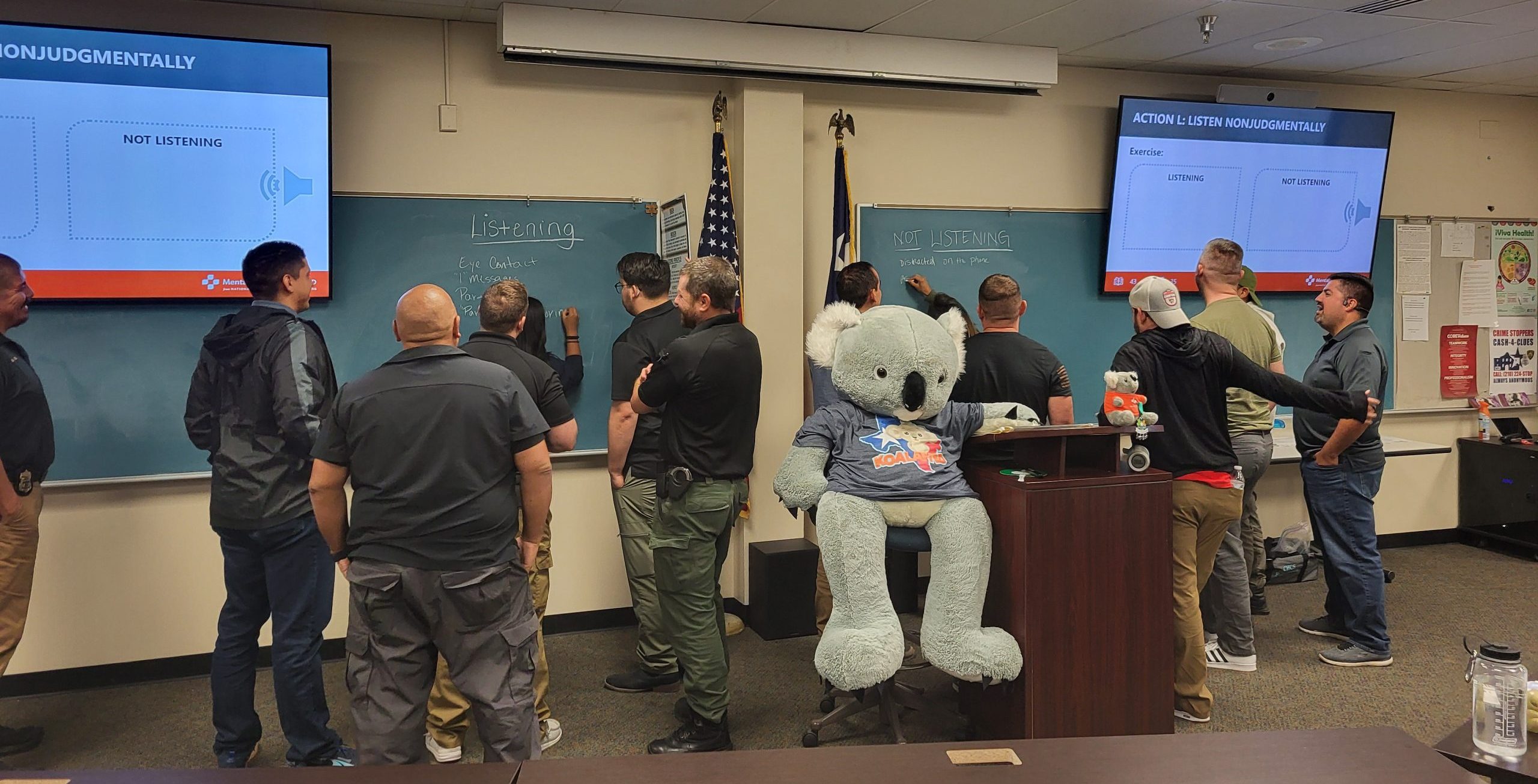
There’s Strength in Numbers
One of YMHFA’s philosophies is that as more people get trained, more people will notice when a student may need support. As Phyllis Finley put it, “A teacher in a 30-person classroom isn’t going to be able to see everything— we believe in strength in numbers.”
The YMHFA program aims to ensure that individuals stay within their comfort zones and avoid offering services beyond their level of training. When school staff like educators, custodians, and bus drivers get trained, they’re not expected to be therapists or counselors.
There are only a limited amount of mental and behavioral health professionals on any given campus which creates a challenge in identifying every student who may be facing mental health and substance abuse concerns. “This program teaches everybody to recognize signs and symptoms and to be the eyes and ears for our behavioral health staff,” Amy Anderson said. “Once they see it, they can say something and get the student connected with the right person.”
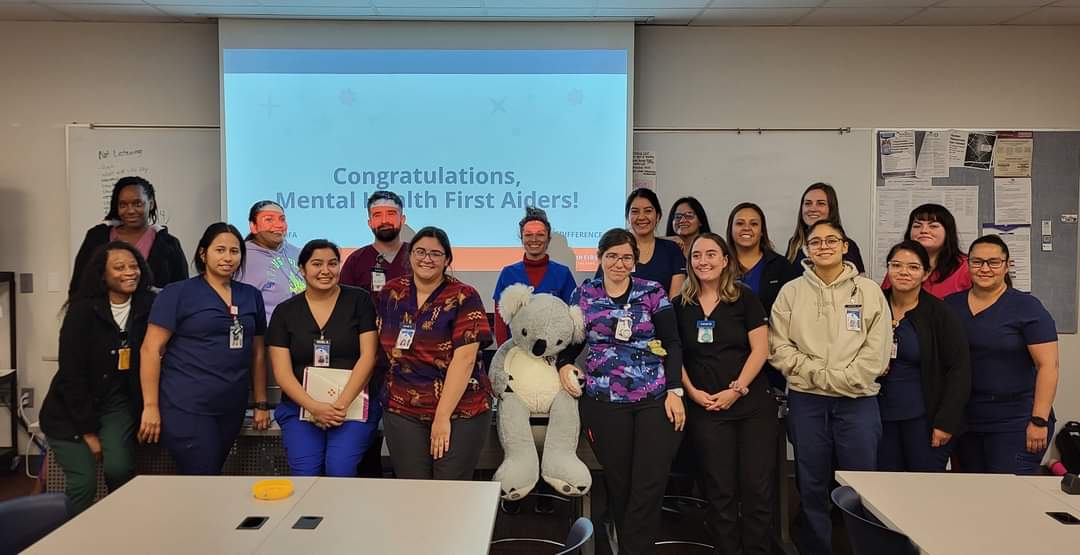
YMHFA Supports School Staff Wellness
When staff take the YMHFA course, their students are top of mind. But it’s also about learning how to stop and look out for themselves, their loved ones, and their coworkers. School staff have a lot on their plate, both personally and professionally, so instructors motivate everyone to assist each other.
Amy Anderson mentioned one story about a father who stayed after the session. He said she helped him realize that his daughter went through a difficult time recently, but he didn’t handle it very well. He acknowledged that he owed his daughter an apology and wanted to be more compassionate in the future.
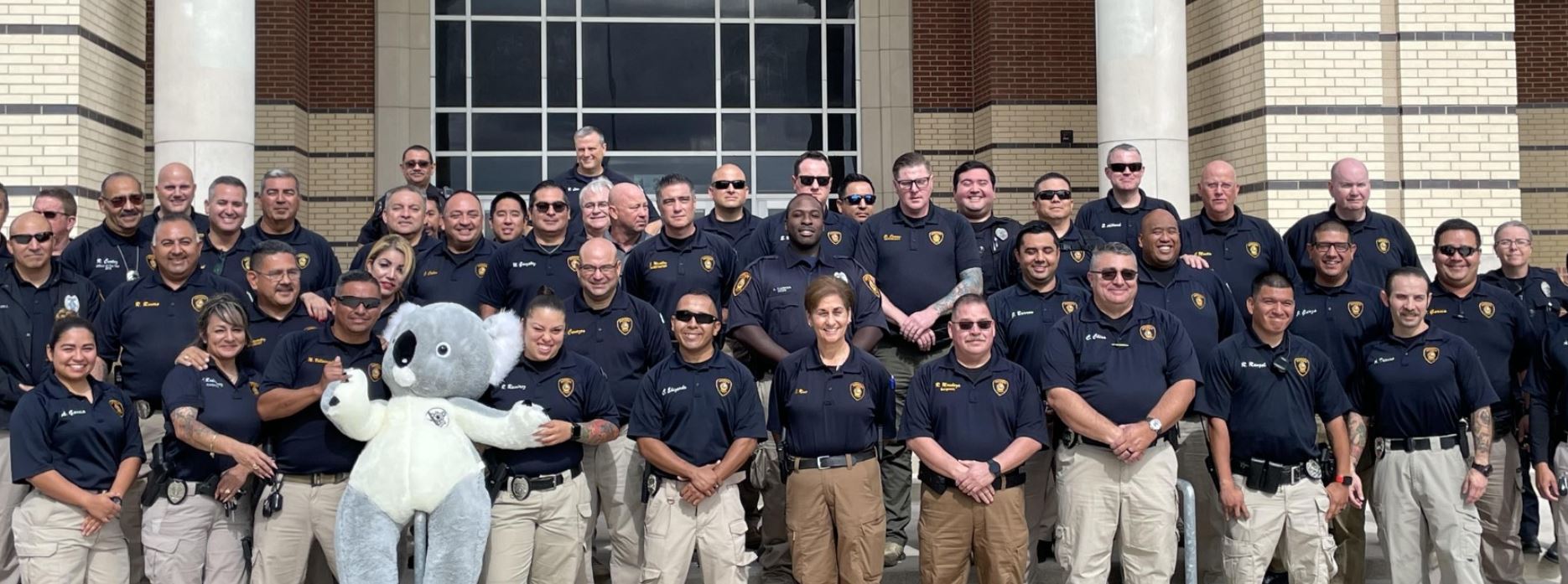
Stay Tuned for more Mental Health Best Practices
We want to thank everyone for taking the time to chat with us about such an important program. YMHFA trainings inspire hope and foster more supportive school environments for young people.
Our Texas School Mental Health website gives school mental health leaders the tools they need to develop a comprehensive school mental health system. Visit our best practices page to learn more about resources and programs for schools.
